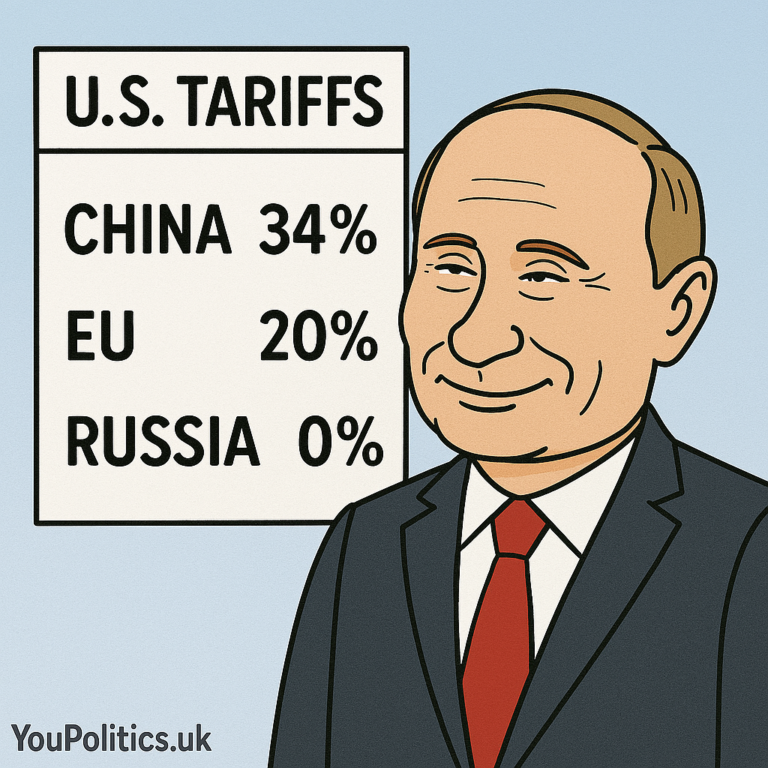
Donald Trump has threatened the European Union with 20% tariffs on the export of EU goods to the US unless the EU substantially increases its purchases of oil and gas from the USA. No such demand has been made of the United Kingdom, now a free, sovereign nation outside the European Union.
The EU operates as a single trade bloc, meaning all member states are treated as a collective entity in trade negotiations and disputes. In this context, any tariffs imposed by the U.S. would apply uniformly across all EU nations. Trump’s proposed 20% tariffs are intended to address broader U.S.-EU trade imbalances and perceived unfair trading practices.
According to analysis by economists at the University of Sussex, if the UK were still in the European Union, these tariffs could reduce UK exports to the U.S. by approximately £22 billion annually. Key sectors such as fishing, petroleum, pharmaceuticals, and mining would face particularly steep declines, with ripple effects felt across industries reliant on exports. Additionally, as part of the EU, the UK would be tied to any collective EU responses or retaliatory tariffs, further entrenching trade tensions and compounding economic losses.
Why the UK Avoids This Scenario Outside the EU
Post-Brexit, the UK has the ability to act independently in trade negotiations, giving it a significant advantage in avoiding or mitigating such a substantial trade loss. The UK’s departure from the EU allows it to:
- Negotiate Directly with the U.S.\
The UK can engage in bilateral trade talks with the U.S., creating a framework tailored to its unique economic needs and ensuring that it avoids being swept into tariffs aimed at the broader EU. This ability to craft agreements focused solely on UK-U.S. trade relations is a key advantage of leaving the EU. - Sidestep EU-U.S. Trade Tensions\
By not being part of the EU, the UK is less likely to be targeted in disputes centred on U.S.-EU trade imbalances. This neutrality could shield the UK from tariffs designed to penalise the bloc as a whole, especially as the UK’s trade balance with the U.S. is less contentious. - Customise Industry Support\
The UK government has greater freedom to directly support sectors at risk from tariffs, such as fishing or pharmaceuticals, through financial incentives, tax relief, or export subsidies. This targeted support is more feasible outside the EU’s regulatory framework. - Avoid Retaliatory Measures\
The EU has a history of responding to U.S. tariffs with retaliatory measures, escalating trade wars. The UK, outside the bloc, is not obligated to participate in such retaliatory actions, allowing it to adopt a more pragmatic and cooperative trade strategy.
The £22 billion figure highlights the risks of being tied to collective EU trade policy in the face of U.S. tariffs. By leaving the EU, the UK has positioned itself to negotiate directly with the U.S., avoid entanglement in EU-U.S. trade disputes, and adopt flexible, targeted strategies to protect its industries. This independence provides a crucial buffer against the economic fallout that would likely accompany Trump’s proposed tariffs, enabling the UK to preserve its trade relationship with the U.S. while forging a more resilient economic path.






